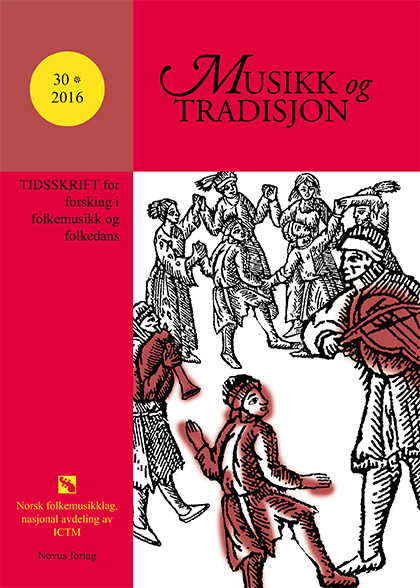Abstract
This article presents a study of organised workshops for fiddlers in the 1920s and 30s in Sweden. It presents an overview of the teaching that was organised for fiddlers, the ideological and pragmatic motives for organising it, and - to a lesser extent - the structure and content. The existence of workshops for fiddlers during this period was part of the formalization of the Swedish folk music and dance. The teaching was seen as both desirable and potentially harming. That is, for a certain group of fiddlers - those who played folk dance music - the courses were considered to be a necessary effort both for recruiting more fiddlers to play folk dance music and to raise their technical level. But for those fiddlers who were considered to represent a more genuine folk tradition, the workshops could jeopardise their individual and characteristic styles.
This work is licensed under a Creative Commons Attribution-NonCommercial-ShareAlike 4.0 International License.
Copyright (c) 2017 Musikk og Tradisjon

